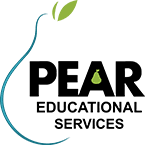Biology
key stage 3 & 4 science tripsOur Key Stage 3 & 4 and IB programmes are delivered by our highly trained, specialist instructors and designed to meet the needs of your school and the curriculum.
We will tailor your studies to suit your individual exam board specification, including AQA, Edexcel, IB, CIE & OCR. We can design your studies to assist with one or both of the two days of compulsory fieldwork as well as studies to support classroom learning.
Our aim is to help to develop the skills needed for fieldwork examinations. See below to explore these subjects further.
Expertise
We have an exceptional range of knowledge in a diverse range of subjects. Allowing for greater flexibility in tutoring.
Familiarity
Studies have shown that continuous teaching by the same tutor improves memory retention and relationship development
Experience
We have been involved in outdoor education for 20yrs. Our experience encompasses all students and learning abilities.
Reliability
Our tutors have impeccable track records in all their teaching experience. They always put the students first
OBJECTIVES
Course Objectives
Organisms & Their Environments
Understand the interactions of organisms and their environments and the consequences of these interactions for population, community, and ecosystem dynamics.
Interpret & Hypothesise
Gain the ability to interpret results and apply them to hypothesis
Display & Demonstration
Use the correct displays to demonstrate the findings of the activity
Methodology
Learn the methods appropriate to the particular activity as well as identifying their strengths and weaknesses
Statistics & Formulae
Apply the appropriate statistics or formula to establish correlations within the ecosystems
Evaluation & Improvement
Gain the ability to effectively evaluate the overall activity and suggest future improvements for the experiment
Biology Course Structure
Suitable for key 3 & 4 stages and IB Biology
*All the equipment required to complete the activity including all handouts, meters and data analysis tools are provided.

Investigating Feeding Relationships
Incorporating random sampling techniques, the students will record and capture invertebrate species. The species will be classified to their trophic level to enable the creation of pyramids of mass, numbers & energy.

Fire & Secondary Succession
Using random sampling techniques, students will study the population of plant species in various stages of recovery to witness secondary succession through its various stages.
Secondary succession traditionally takes place after a major disturbance such as a fire or flooding.
Arable land that has been left untouched can undergo secondary succession.
The most important difference between primary and secondary succession is that secondary succession ALWAYS begins in an area that already has soil.

Ecosystems
Students will look for the presence and absence of various species in two contrasting areas. This will include the study of abiotic factors to establish their influence on the ecological community present.
An ecosystem is a community of organisms in one specific physical environment. They can be of different sizes and environments including marine, aquatic and terrestrial.
Ecosystems with higher biodiversity tend to be more stable with greater resistance and resilience in the face of disturbances, disruptive events.

Estimating Population Size
A small two-part study using the Lincoln’s index to estimate a species population size within an area.
The Lincoln’s index is a statistical measure used in many fields to estimate the population sizes of individual animal species. Based upon capture . mark / recapture method. Sampling a population of animals and marking all of the individual species in a recognisable way.

Aquatic Microhabitats
A look at species diversity of aquatic invertebrates found in two areas altered by abiotic factor within a stream. In the follow up work, Simpsons diversity will be discussed to understand its use.

Aquatic Pollution
A series of methods will be applied to establish the level of pollution found within two water sources. The importance of indicator species will be discussed.

Seashore Zonation
Using systematic sampling, the students will examine the correlation between species abundance and diversity on the littoral zone.
Optional Learning Opportunities
Optional Learning Opportunities
Bat Watching
Evening classes
Discover about these mysterious creatures of the night through an evening walk
Eco Hike
Weekend classes
Take a guided walk in the stunningly beautiful Akamas and learn about its many plants and animals that make this a unique peninsula.
Snake Talk
Weekend Classes
Learn from an expert more about Snakes and why they are a vital part of the ecosystem. Live snakes maybe present if requested and available.
TESTIMONIALS
What You Say About Us
Lyndon Taylor has an extensive knowledge and understanding of the IB Biology curriculum including the Further Ecology option. He is able to provide students with an in-depth ecological study on any topic or in any area of Cyprus. He knows all the local plants and animals, and the history of the villages in Paphos. The students love him and with his sense of humor he keeps them thoroughly engaged.
Heather Charalambous
Head Of Science Department, American International School in Cyprus
Lyndon is a gifted teacher who quickly connects with students and who is able to easily transmit his passion for ecological field work. His qualifications, rich knowledge and experience allow him to use theory and ecological field or lab techniques to help students understand how ecosystems function. His job however as an educator doesn’t stop at the transmission of knowledge and information.
With his pleasant demeanour and through his example he manages to instill in students a care and love for the natural environment. For us teachers, he is a pleasant and witty conversationalist that makes working with him a pleasure one looks forward to every year.
Elias Kamaratos
Book A Course Today!
